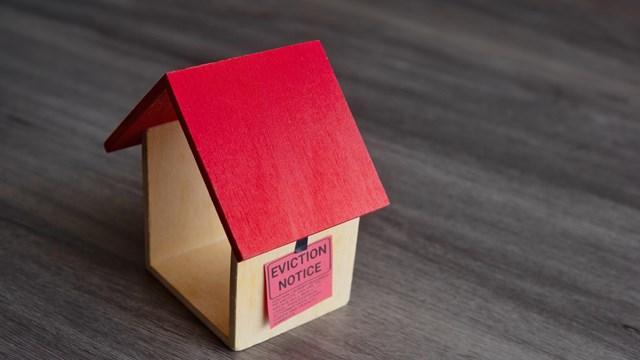Despite living in association, sometimes disputes erupt. Some residents just can’t be reasoned with. They’ll bother the board or other residents in various ways: noise at all hours, smells, maybe even just being a pest. No matter what it is, issues like these need to be dealt with before they become bigger (and more expensive) issues for boards and managers.
When Things Turn Ugly
“It can be one of a couple of things. My biggest issue is, for the most part, is just loud music, loud television, that’s one. Another one is typically couples that don’t get along, and so there’s loud voices and/or arguing. And then my third one is typically somebody might be doing something that involve either drinking or drugs, so people come into the building and somebody will be having a party that involves drinking, or somebody comes home and they’re smelling something like marijuana, or something like that,” says Joseph J. Balzamo, the president of Alliance Property Management in Morristown, New Jersey.
Of course those aren’t the only kinds of complaints people make; some seem minor, but others seem just...out there.
“Some of the common complaints I’ve gotten this week for instance was a new resident moved in above a condominium I manage where they’re walking around at odd hours of the night, kind of stomping,” says Michael Foley, president of Boston Condominium Management in Boston, Massachusetts. “And the person who lived there before was a very quiet woman. She had rugs down, and the new person is a bigger person who walks around with boots or whatever and doesn’t put the rugs down. There are no specific condominium rules and regulations in the bylaws that prohibit [going rugless]—it’s only suggested.”
Another property manager mentioned another troublesome situation involving an owner’s boyfriend who reportedly is an alcoholic. “He just calls us all the time for no specific reason just to create trouble. He harasses the other people in the building as well.”
Try to Be Constructive
Of course, these aren’t the only kinds of disruptive residents. As Keith Hales, the president at Chicago-based Hales Property Management, Inc., points out, “As a management company our goal is always, at a minimum, to meet the expectations of our residents. In line with that goal, we very much appreciate the feedback we receive from our residents, even in cases where that feedback may not be constructive. However, the point with which feedback and or behaviors become disruptive is when a resident lacks patience and professionalism with their conduct, or is unwilling to positively contribute towards a common goal.”
No matter what the issues are though, if they start to have a negative impact on the building, it’s time to take steps to correct them.
“Difficult shareholders can oftentimes still bring a considerable amount of value to the table,” says Hales, “so there’s a delicate balance between knowing when to manage such individuals and when to deal with them more decisively. Obviously, the point at which a shareholder or unit owner becomes intolerable, offensive, reckless or begins to have a negative impact on the team is when additional action may be warranted.”
For those who are disruptive in the more traditional ways—the noisy, the fetid, and the generally disruptive—Balzamo has a rule of thumb; “If it happens more than once, and if it’s happening in the wee hours of the morning,” then they definitely need to be dealt with.
Dealing with Disruption
Now just because a resident is being disruptive doesn’t make it the board’s responsibility to step in immediately and put the kibosh on whatever is going on; there’s a reason that buildings hire property managers, after all.
“As the managing agent, we do our best to filter these kinds of residents in an effort to assist the board,” says Hales. “If the issue persists, we often seek guidance from the board and/or a third party such as a law firm.”
Foley agrees. “It really falls first and foremost to the first line of defense, which is the property management company. That’s why boards hire a property management company—to deal with these things so they don’t have to.”
As a result of the property manager tackling the brunt of these issues, odds are the board won’t be aware of every little thing right away.
“Usually the board doesn’t know about it until a little bit later, as we’ll hear about it first,” says Balzamo. “We obviously try to provide guidance as we can. Clearly, if it’s after hours, depending on who the neighbor is and what’s going on, you might inform them that law enforcement may have to be called,” says Balzamo.
Of course if the property manager can’t resolve the issue, or—worst-case scenario, law enforcement has gotten involved—then it comes time to take more aggressive action.
“If despite its best efforts, we as a property management company or anyone else in our position gets to a point where we’ve tried everything we can and it’s just not resolving, then we have to have a meeting with the board and sometimes a lawyer has to be called in,” says Foley. “If it has to be resolved outside of the property management...sometimes fines are involved, and occasionally a new amendment to the bylaws might have to be enacted.”
Resolving Things Internally
No one wants to call in the lawyers or the police if they don’t have to. Lawyers cost money, no matter how good they are, and calling the police could potentially be a hassle on any number of levels. Perhaps that’s why everyone feels the best way to start is to reach out and try to make a conciliatory gesture.
“We almost always advise the disrupted resident to first reach out to their neighbor with a kind gesture or some other attempt to get to know them,” says Hales. “The issue can often be resolved by handling it this way, as the neighbor may not even be aware that they are causing a disruption. If all avenues to resolving an issue have been exhausted, then it may be necessary for the board to become involved.”
Foley agrees, adding that “I’m always willing to listen to someone and try to look at something from their point of view. And if I look at their point of view and what they’re saying makes sense, then I may not agree with what they’re saying but I totally understand their right to say it and appreciate it as a property manager that I have to work towards resolving the situation, whatever that may be.”
The pros agree that good, old-fashioned respectful communication is probably the best way to avoid issues in the building. After all, knowing your neighbors and respecting each other goes a long way towards solving problems.
“What I always encourage people to do first and foremost, is try to have conversation and dialogue with your neighbors, especially if you’re going have, let’s say, a party or a get together in your unit, you can tell your neighbors that you’re going have a party or a get together,” says Balzamo. “You tell them when it’s going to be, you tell them what time. Now, if they’re not respectful of you, those are the other kind of indicators that you’re dealing with somebody that’s more self-centered or self-absorbed, and not really caring about anything other than themselves.”
Of course when it comes to building politics, managing conflict can become a lot harder.
“It’s the stuff that gets involved with politics in between the individual people that live in the building, that have a discrepancy or a dispute about their opinions that can’t come to a common ground, that drives us nuts,” says Foley, “Especially when there’s obviously one person that’s just being unreasonable. We just ask for people to be reasonable and do a good job explaining their side so we can come to a solution, but sometimes no solution is readily available and they still just refuse to see the light. It’s maddening.”
But even then, communication is key—especially face-to-face communication.
“It’s important when dealing with ‘demanding’ shareholders or unit owners to listen and make sure that we’re doing everything we can to hear and resolve the issue at hand,” says Hales. “Setting their expectations for potential resolution, if any, is also very important. Good managers and board members will typically deal with the issue right away, either face-to-face or over the phone, and then follow-up with a letter or email. Following-up with them a few days or a few weeks later usually goes a long way in ultimately creating a positive experience.”
John Zurz is a staff writer and reporter for The New Jersey Cooperator.










Leave a Comment